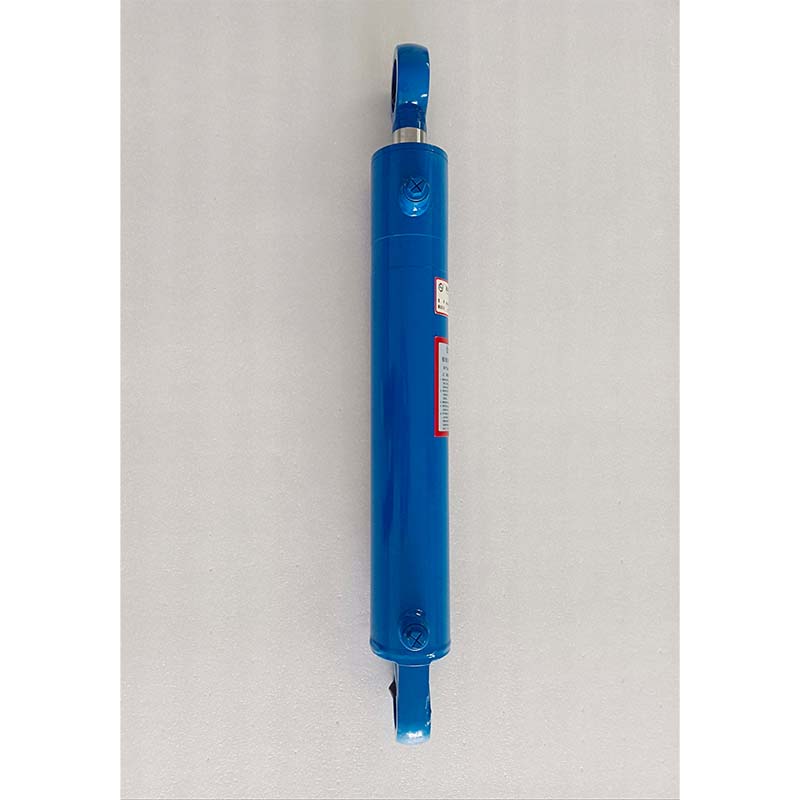Там . 20, 2024 02:23 Back to list
Enhancing Performance of Primed Hydraulic Cylinder Products for Optimal Efficiency
Understanding Priming in Hydraulic Cylinder Products
Hydraulic systems are integral components in various industrial, automotive, and construction applications. At the core of these systems are hydraulic cylinders, which convert hydraulic energy into mechanical force, enabling heavy lifting, pushing, or pulling tasks. One crucial aspect of maintaining the functionality of hydraulic cylinders is the process of priming. In this article, we’ll explore the concept of priming in hydraulic cylinders, its significance, and best practices to ensure optimal performance.
What is Priming?
Priming in hydraulic systems refers to the process of removing air from hydraulic cylinders and the associated piping. Air trapped within these systems can lead to various issues, including erratic performance, reduced efficiency, and potential damage to the hydraulic components. The presence of air means that the hydraulic fluid cannot exert the necessary pressure, resulting in diminished power output and slower operation.
When hydraulic cylinders are primed correctly, the fluid fills the cylinder, displacing any air pockets. This ensures a continuous, smooth flow of hydraulic fluid which is essential for the reliable functioning of machinery.
Importance of Priming
1. Efficiency Air in hydraulic lines can compress under pressure, leading to the inability to transmit the necessary force. Proper priming eliminates these air pockets, ensuring that hydraulic systems operate at their peak efficiency.
2. Performance Consistency Hydraulic systems are often subjected to various load conditions. Without effective priming, air in the system can lead to inconsistencies in performance, as the power output can fluctuate. A well-primed hydraulic cylinder will respond uniformly, providing predictability in operations.
3. Component Longevity Regularly priming hydraulic cylinders can significantly extend their lifespan. Air can cause cavitation—a phenomenon where vapor bubbles collapse violently, causing shock waves that damage the cylinder walls and seals. By maintaining proper priming, the risk of cavitation is reduced, thereby prolonging the life of the hydraulic components.
4. Safety A hydraulic system that is not properly primed can lead to sudden failures, posing safety risks for operators. By ensuring that hydraulic cylinders are primed, operators can prevent accidents resulting from unexpected loss of power or control.
priming hydraulic cylinder products

Best Practices for Priming Hydraulic Cylinders
To achieve proper priming, follow these best practices
- Check Fluid Levels Ensure that the hydraulic fluid reservoir is filled to the appropriate level before operation. Low fluid levels can trap air within the system.
- Vent Air in the System Use bleed valves or similar devices to release trapped air before initiating the hydraulic system. This step is critical for ensuring that air does not obstruct the hydraulic fluid flow.
- Use Correct Hydraulic Fluid Select hydraulic fluid that is compatible with your system and is designed to minimize foaming, which can introduce air into the system.
- Monitor System Performance Regularly check for signs of air entrainment, such as erratic cylinder movement or unusual noise. Address these issues promptly to prevent further complications.
- Routine Maintenance Incorporate regular maintenance checks into your operating schedule. This ensures that all components, including seals and hoses, are in good condition and that air is not entering the system.
Conclusion
Priming hydraulic cylinder products is a fundamental step in ensuring the efficiency, performance, and longevity of hydraulic systems. By understanding the importance of this process and implementing best practices, operators can optimize the functionality of their hydraulic equipment, leading to safer and more effective operations. In industries where hydraulic systems play a crucial role, neglecting the priming process can have detrimental effects, highlighting the need for diligence in hydraulic maintenance.
-
High-Precision [90/105-50-180-480] Industrial Component | Durable & Reliable
NewsAug.27,2025
-
High-Performance Set of 50/60-45-290 471 | Durable & Reliable Components
NewsAug.26,2025
-
Efficient Pallet Truck Power Units - Reliable Hydraulic Systems
NewsAug.25,2025
-
Premium Set of 50/60-45-290 471 Parts | High Performance
NewsAug.24,2025
-
Efficient & Reliable Double Acting Power Unit | Hydraulic Solutions
NewsAug.23,2025
-
1.5 Ton Turbocharged Cylinder 80/95-40/60-35-124 | High Performance
NewsAug.22,2025
